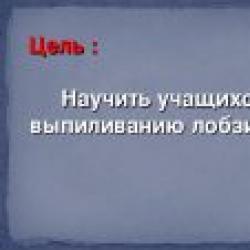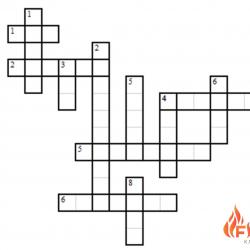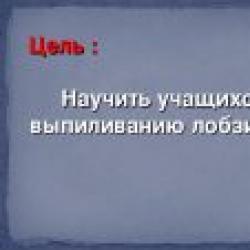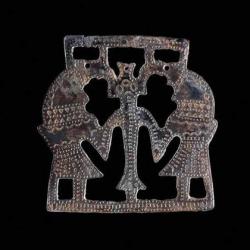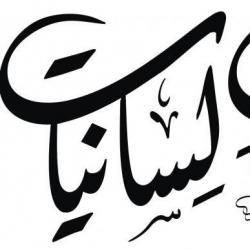Ancient Germans. Religion and life of the ancient Germans. What was the name of germany in the old days in Russian
The word Germans for the inhabitants of Germany themselves is almost the same as the Russian word "Germans". In ancient times, in Rus', all foreigners were called that and it meant “dumb people”, i.e. not speaking Russian.
It should be noted that the Germans themselves do not use "Germany", "Germans" in relation to themselves. In ancient times, the Romans of the era of Julius Caesar called their northern neighbors that way, then these Latin words were fixed, for example, in: Germany, Germans. The representatives of the Germanic tribes themselves at first did not name themselves in any way, and then they began to call themselves Deutsch, from the ancient German word diot - “people, people”. Moreover, the word Deutsch was also used in relation to the Danes, and the inhabitants of the British Isles, and other Germanic tribes, and not just those whose descendants are today called Germans.
Germany's predecessor states
The Germanic ethnos was formed from the Indo-European tribes in the north of Europe. As an independent, it began to be distinguished from the 1st century. BC e. Gradually mixing with the population of the territories they conquered, the Germans participated in the formation of new ethnic groups, including the French and the British.
In different historical periods, the state formations of the German peoples were called differently.
In the 9th century, the East Frankish kingdom was formed, the borders of which roughly coincided with the borders of modern Germany. The year 962 is traditionally considered the year of the founding of the German state: the East Frankish king Otto I, crowned in Rome, became emperor of the Holy Roman Empire, a confederation of lands headed by the Kaiser.
In 1806, Napoleon I ended the existence of the Holy Roman Empire and began to bear only the title of Emperor of Austria. From the independent German states, the Confederation of the Rhine was created, which in fact was also a confederation. Subsequently, 38 German states formed the German Confederation with the Kaiser of the Austrian Empire at the head.
The German Union collapsed as a result of the 1866 war between the most powerful German states - the Austrian Empire and Prussia, which ended in victory for the latter.
In 1868, the North German Union was created with a single monetary system and army, headed by the King of Prussia, the Reichstag and
Federal Council as legislative bodies.
In 1870, the North German Confederation was renamed by the Reichstag and became known as the German Empire (Deutsches Reich in German), the successor of which is considered to be the modern Federal Republic of Germany. Otto von Bismarck became Chancellor of State. This state, in addition to the descendants of the ancient Germans, included other assimilated ethnic groups. Further, the national self-consciousness of the Germans grew, which led to the flourishing of German culture and science.
From 1871 until 1945, the official name was Deutsches Reich (German Reich), which ceased to exist after the defeat of Germany in 1945 in World War II. In 1949, the state was divided into the German Democratic Republic (GDR) and the Federal Republic of Germany (FRG). In 1990, they reunited into one country, which Germany is to this day.
About 1500 different peoples live on our planet, which have their own individual names that distinguish them from each other. But in addition to official names, many peoples also have nicknames given to them at one time by their friends, neighbors or, conversely, opponents. Of course, they are not mentioned in international treaties and other important documents.
Each of these nicknames, sometimes mockingly joking, sometimes sarcastically offensive, has its own history and its own destiny. Some of them are known only to historians, while others, on the contrary, exist to this day.
Some nicknames even became the official names of peoples in the languages in which they originated. Everything depends on the historical situation that contributed to their appearance, and further relations between peoples.
Where did the barbarians come from?
The appearance of the first national nicknames dates back to ancient times. Even the ancient Greeks, and later the Romans, used the word "barbarians" in relation to the peoples surrounding them. They were called peoples belonging to different ethnic groups and speaking different languages: Slavs, Germans, Celts and many others. For Greece and Rome, with their developed culture, these peoples looked very backward. And their language was incomprehensible.
It seemed to the Greeks and Romans that, while communicating with each other, they utter some strange sounds - “var-var”. Hence the nickname, which has existed for many centuries. Later, this word lost its original meaning and became a household word. Now it means a rude, ignorant person who destroys what was created by the labor of others, regardless of his nationality.
Who are the freaks?
National nicknames also appeared in Rus'. In the second half of the 15th century, on the initiative of Grand Duke Ivan III, many foreigners came to the Russian state, mainly from southern Europe, mainly from Italy. These were architects, engineers, gunsmiths and other craftsmen. Here the Italians received the nickname "fryagi", "fryazi" or "fryaziny".
This word was borrowed with some distortion from the Serbian language, where it meant "Latins", that is, Catholics. Accordingly, any item of Italian import was designated by the word "fryazhsky". In the official documents of that time, the nickname “Fryazin” was added to the names of the Italian masters, with which many of them went down in history.
How did the Germans become Germans?
Pronouncing the words "German", "German", we do not even think about their origin. And it has its own interesting history, also dating back to the Middle Ages. In addition to the Italians, who received “their” nickname, residents of other European countries also came to us. These were diplomats, merchants and masters of various professions. Naturally, immediately upon arrival, none of them knew Russian and could not communicate with the local population without an interpreter.
Having met a foreigner on the street and asked him some question, a Russian person did not receive any answer from him. So the opinion appeared that all foreigners are dumb and cannot speak. That's why they called them Germans. Moreover, this concept included not only the inhabitants of Germany, but also the Dutch, the British and many others. Gradually, this word began to designate precisely the Germans, and it established itself in the Russian language as a generally accepted norm.
Boches, Fritz and Hans
Nicknames appeared at a later time. Especially "got" the same Germans, who were often given contemptuous nicknames by other nations. In the 19th century, Prussia - the largest German state - often waged wars with its neighbors. France was one of the main targets of its aggression. The evil-tongued French came up with a nickname for their opponents. They disparagingly called them bosses.
This word also existed in the 20th century, especially during the two world wars unleashed by Germany. During the First World War, Russia also had to face the Germans in a military confrontation. And in Russian, it was not long before another nickname for them appeared - Fritz. This word comes from one of the common names in Germany, which can be both independent and diminutive of the name Friedrich.
This nickname of the Germans became especially popular in 1941, when Germany again attacked the now Soviet Union. There was another nickname at that time - Hans, also derived from a common German name. However, now these nicknames, which are not very pleasant for the German people, are already a thing of the past, and our countries have maintained friendly relations for many years.
Chub vs beard
Anything can be the basis for the appearance of national nicknames. Some features of the appearance of people can become an occasion. The most famous is a kind of "exchange" of nicknames between the two fraternal Slavic peoples - Russian and Ukrainian.
At one time, the Zaporizhzhya Cossacks shaved their heads, leaving a forelock in front, which the Russians called "khokhol". The carriers of such a hairstyle themselves were also called Khokhols, and from them the nickname passed to all crests in general. Of course, they did not remain in debt and also came up with a nickname for the Russians, associated with their appearance.
Unlike Ukrainians, Russians wore beards, which gave the first reason to call them katsaps. In Ukrainian, the word "tsap" means a goat, which, as you know, has a "beard". The Ukrainian phrase "yak tsap" literally meant "like a goat". Later it was transformed into the well-known word "katsap". Both of these nicknames have long become comic, and people with a sense of humor are not offended by them.
There is another nickname for Russians in Ukraine, which has a more negative connotation - Muscovites. Naturally, it comes from the name of the capital of Russia. Initially, this was the name of the officials who, after the unification of Ukraine with the Russian state, came there to establish new orders. Then this nickname began to be called all Russians. It is in this meaning, and extremely dismissive, that it still exists in the west of Ukraine.
Potatoes, pasta and frogs
Finally, some nicknames originated from the characteristics of a particular national cuisine. It is known that in Italy one of the favorite national dishes is pasta. "Good" neighbors immediately responded to this fact, calling the Italians pasta. However, this does not prevent residents of all countries of the world from visiting numerous Italian restaurants and eating spaghetti with pleasure.
The French were not left without a nickname, in whose national cuisine certain types of frogs are used. They became known as frogs. True, the French themselves are not very pleased with this nickname. Moreover, in French cuisine there are enough other dishes from a variety of products.
With regard to the nickname, the Belarusians were the most fortunate. In their cuisine there are a lot of various and tasty potato dishes, which the Belarusian land is rich in. In Belarusian, potatoes are called "bulba". So the Belarusians were nicknamed by their neighbors - Russians and Ukrainians - Bulbash. However, the Belarusian people are not at all offended by such a nickname. Cheerful, good-natured and hospitable Bulbash has long become something of an unofficial symbol of Belarus.
In russian language
Abrek is a Chechen, Dagestan, in a broad sense, a male representative of any people of the North Caucasus. Among the Caucasians themselves - a mountaineer-outcast.
Azer, aizer - Azerbaijani.
Azeri is also one of the self-names of Azerbaijanis, probably originating from the name of the disappeared Indo-European language of the northwestern subgroup of Iranian languages, which existed on the territory of Southern Iranian Azerbaijan, presumably until the 17th century.
Amerikos, Amer, Pindos(this word originally denoted the Greeks) - an American.
Ara is Armenian (does not carry an offensive connotation).
Afro-ass, afro-ass, afro-black-ass- black person. It arose as a sharply negative reaction to the politically correct "African American".
An Afro-Russian is a Negro living in Russia.
Baibak is the nickname of the Karelians or the inhabitants of Karelia in general. It has a contemptuous connotation, hints at the negative qualities inherent in the steppe marmot - laziness, stupidity.
Basurman (Busurman, Busarman, Basurmanin, Busarmanin)- in the old days in Rus': a Tatar, a person of a different religion, mainly from the East. Initially, the nickname has a religious meaning: "basurman" - obviously, a distorted "Muslim" - that is, a non-believer.
Biralyukas (bralyukas)- Lithuanians. Origin from "brolis" - "brother", "brolyukas" - "brother".
Bulbash (from Bel. Bulba - "potato") - Belarusian.
Hans is German.
Guran - usually used in relation to the descendants of mixed marriages of Russians and Buryats in Transbaikalia, also to the Transbaikal Cossacks. It came from the name of a male roe deer, which is one of the main game animals in Transbaikalia. Gurans in Transbaikalia have a special "brotherly" (semi-Mongoloid) appearance, thick black hair, wide cheekbones and swarthy skin, and also speak a special, Transbaikalian dialect of the Russian language.
The Jew is a Jew.
Beast, animal (came out of thieves' jargon) - a contemptuous nickname for visitors mainly from the Transcaucasus or Central Asia, less often from the North Caucasus.
Labus (Hans) - Latvians. Comes from the Lithuanian greeting "labas", "laba diena" - "good afternoon"
Lyakh (obsolete) - Pole.
The frog is French.
Lapps are Saami.
Myrk, Moor - a derogatory nickname for uncultured, uncouth, rude people in Kyrgyzstan. Synonym - "cattle". The nickname is used by the population living in the capital of Kyrgyzstan - Bishkek in relation to rural residents.
Pasta is Italian.
Mambet is a formerly widespread male name derived from the Kazakh pronunciation of the word "Muhammed" from the word "Mahambet". It is used both by the non-Kazakh population and by urban Kazakhs in relation to rural Kazakhs or recent immigrants from the village. A priori, a Kazakh who does not speak Russian well is considered a mambet in Kazakhstan.
Muscovites - Russians (outdated).
Non-Russian - used disparagingly in relation to anyone who is not Russian.
Ниггер - заимствованное из США оскорбительное наименование чернокожего.
Pindos (sometimes "pendos") - from about the 19th century in the Russian Empire, as now in the south of Russia and Ukraine, as well as in Kazakhstan, are Greeks. However, it is now increasingly used in relation to Americans.
Psheki (pshek) - Poles. It arose due to the "hissing" nature of Polish speech.
Russians, Rusapets, Russians- outdated self-name of Russians.
Samoyeds (obsolete) - Nenets.
Seldyuk is a Siberian nickname, roughly the same as chaldon.
Fritz is the name of the Germans. Origin - shortened form of the name "Friedrich"
Tungus (outdated) - Evenks.
Narrow-eyed is a disrespectful nickname for the Mongoloids (Chinese, Koreans, Vietnamese, etc.).
Khach, Khachik - an Armenian (in recent years, any native of the North Caucasus and the Transcaucasian countries is mistaken).
Chaplashka is a Tatar (approx. in Tatarstan).
Chah (i) (obsolete) - Czech.
Black-assed (from hair color or dark skin) - absolute brunettes, people from the Caucasus, Central Asia, the Middle East. It is a kind of backronym for the American Wog, which is also used to refer to residents from the Middle East, Southern Europe and the Balkans: Italians, Moroccans, Latin Americans, Macedonians, Greeks or Spaniards. The nickname, originally referring to blacks, has now mostly been transferred to black-haired or dark-skinned foreigners.
Black:
The first meaning (from hair color or swarthy skin) is a pejorative designation by the predominantly Russian population of representatives of the Transcaucasus, Central Asia and the Middle East. In Russia, this term has a different meaning in contrast to the United States, that is, people are meant not literally “black”, but precisely “black-haired”, brunettes, people who are Caucasian in their type, but still with skin slightly darker than that of northern Europeans. This nickname denotes Armenians, Azerbaijanis, Tajiks, Moldovans, etc.
The second meaning (according to skin color) is the same as African Americans, Negroes, blacks belonging to the Negroid race.
Khokhols - crests (from the Cossack custom to wear a forelock).
Chaldons, chaldons- the old name of the Don Cossacks who remained to live in Siberia after its development. Cheldon is a man from the Don. It was used among Russian Siberians in relation to other Russian Siberians with an emphasis on the stupidity and “valenkovnost” of a person. At present, the use of the word is rare even in Siberia, it is found mainly among the older generation.
Black dropouts (by skin color) are representatives of the black race, blacks, the designation “black” is also common.
Czech (derivative, army slang) - a Chechen, predominantly a Chechen fighter.
Chocks, chumps, chureks, chebureks, babakhany, rhinos, chuchmeks, saxauls- contemptuous designation of representatives of the peoples of Central Asia. This word has penetrated into colloquial speech from the criminal jargon, obviously from the Turks.
Chukhonets, chukhon, chukhna- a disrespectful nickname, used mainly by the Russian population in relation initially to the Ingrian Finns, later to the Finns of Finland and other representatives of the Finno-Ugric peoples. Chukhna, Chushka - Finland.
Hellenes are Greeks.
Yankees are Americans.
In other languages
Ami (Ami) - the nickname of the Americans by the Germans (simplification / reduction).
Aleman - lit. "German" (Spanish) - in Cuba, all white Europeans.
Ak-fist, ash-kuloh(literally white-eared) - an insulting nickname for the Slavs in Central Asia, an analogue of the Russian "black-assed".
Boshes are Germans. Borrowed from the French language, the lexicon of the First World War, it also got into Russian.
Bosha is the nickname of the Gypsies among Armenians.
Burla (burlak) is an insulting nickname for Russians in Central Asia.
Wessy - residents of Germany (before the unification of Germany and the GDR). It comes from the German Westdeutschland - West Germany.
Gaijin (from gaikokujin, foreigner) is a disrespectful nickname for non-Japanese in Japan.
Goy - (a word from the Torah) means a non-Jew. It is used in both humiliating and neutral meanings.
Gringos are foreigners, most often Caucasian in appearance, often Americans (in Latin America and Mexico).
John Bull is an Englishman.
Kafir - all non-Muslims (identical to the Jewish goy, Russian infidel, impious, non-Christ).
Latinos is a nickname for Hispanics in the United States, the word has also been transferred to Russian.
Nazaris (Arabic lit. "Nazarenes") are Christians among the southern Arabs.
Ora - the treatment of men among themselves among the Abkhazians.
Rusaki is the collective self-name of the Russian-speaking population in Germany.
Rushpans - Ukrainian. "Russians".
Sarybas, sarybash(literally "yellow-headed") - an insulting nickname for Europeans in Central Asia, used in the sense of "coward", "blunder", "fool".
Shoshka (chuchka) is a derogatory nickname for the Slavs (mostly Russians) in Central Asia, literally "pigs" is sometimes used in the sense of "pig-like", "pig-eaters", "pig people".
Ivans are Russians (among the Germans and not only).
Kalbit - in the regions of Russia bordering Kazakhstan contemptuously - Kazakh.
Kizdym - Kazakh.
Katsaps are Russians. A contemptuous national nickname given to Russians by nationalist Ukrainians. According to the definition of Ushakov's dictionary (1935-1940) - "the designation of a Russian, in contrast to a Ukrainian, in the mouths of Ukrainian nationalists, which arose on the basis of national enmity (Damned katsaps eat cabbage soup even with cockroaches. N.V. Gogol)".
Cockney is a resident of London's working-class neighborhoods. In English, from where it is borrowed, is not offensive.
Xenos is a word used by the indigenous population of Greece in relation to foreigners, foreign-speaking people, emigrants, migrants and to all those who are alien to Greek culture. The word is used in both derogatory and neutral meanings. Xenophobia is the same root word for hostility towards outsiders. A word similar in meaning in use in Russian is non-Russian.
Laowai is a vernacular Chinese term for any foreigners of European origin.
Laomaozi (maozi)- colloquial Chinese designation of Russians.
Muscovites are Russians, more often immigrants from Moscow.
Ossi - residents of the GDR (before the unification of the FRG and the GDR) and the eastern part of present-day Germany. It comes from the German Ostdeutschland - East Germany.
Pakis is a derogatory nickname for people from Pakistan in the UK.
Persil is a contemptuous nickname for an Azerbaijani or a Turk in Turkmenistan.
Pifke is a nickname that the inhabitants of Austria and especially Vienna call the inhabitants of part of Germany, at present this is mainly called tourists from Germany. In Germany itself, this nickname is used as a playful designation of a braggart or imaginary.
Raski is a contemptuous name for Russians (in the broad sense of all citizens from the former USSR) among Americans.
Ryussa - Russians among the Finns.
Sart is a word used by the Karakalpaks, Kazakhs, Kyrgyz and Turkmens to people of Uzbek nationality, most often this word is perceived as humiliating and abusive.
Tibla is an offensive nickname for Russian speakers in Estonia.
Farang is a Thai word originally referring to the French. Is not offensive. In Thailand and Cambodia, farang (barang) refers to any foreigner of European origin.
Habibi - so the Americans disparagingly call the Arabs.
Shuravi - Originally the designation of Soviet soldiers in Afghanistan. At the moment, the neutral designation of all Russians in Arab countries.
Yahudiy - colloquial designation by Uzbeks of a person of the Jewish religion, is used both in a humiliating and in a neutral sense.
POM (Pommy) is a playful nickname for the English in Australia, New Zealand and sometimes South Africa.
For many centuries, the main stories about how the ancient Germans lived and what they did were the works of Roman historians and politicians: Strabo, Pliny the Elder, Julius Caesar, Tacitus, as well as some church writers. Along with reliable information, these books and notes contained conjectures and exaggerations. In addition, ancient authors did not always delve into the politics, history and culture of the barbarian tribes. They fixed mainly what “lay on the surface”, or what made the strongest impression on them. Of course, all these works give a pretty good idea of the life of the Germanic tribes at the turn of the era. However, in the course of later studies, it was found that the ancient authors, describing the beliefs and life of the ancient Germans, missed a lot. That, however, does not detract from their merits.
Origin and distribution of the Germanic tribes
The first mention of the Germans
The ancient world learned about warlike tribes in the middle of the 4th century BC. e. from the notes of the navigator Pythia, who ventured to travel to the shores of the North (German) Sea. Then the Germans loudly declared themselves at the end of the 2nd century BC. e .: the tribes of the Teutons and Cimbri, who left Jutland, fell upon Gaul and reached the Alpine Italy.
Gaius Marius managed to stop them, but from that moment on, the empire began to vigilantly monitor the activity of dangerous neighbors. In turn, the Germanic tribes began to unite in order to increase their military power. In the middle of the 1st century BC. e. Julius Caesar defeated the Suebi during the Gallic War. The Romans reached the Elbe, and a little later - to the Weser. It was at this time that scientific works began to appear describing the life and religion of rebellious tribes. In them (with the light hand of Caesar) the term "Germans" began to be used. By the way, this is by no means a self-name. The origin of the word is Celtic. "German" is "a close living neighbor". The ancient tribe of the Germans, or rather its name - "Teutons", was also used by scientists as a synonym.
Germans and their neighbors
In the west and south, the Celts coexisted with the Germans. Their material culture was higher. Outwardly, the representatives of these nationalities were similar. The Romans often confused them, and sometimes even considered them to be one people. However, the Celts and Germans are not related. The similarity of their culture is determined by close proximity, mixed marriages, and trade.

In the east, the Germans bordered on the Slavs, the Baltic tribes and the Finns. Of course, all these peoples influenced each other. It can be traced in the language, customs, ways of doing business. Modern Germans are the descendants of the Slavs and Celts, assimilated by the Germans. The Romans noted the high growth of the Slavs and Germans, as well as blond or light red hair and blue (or gray) eyes. In addition, representatives of these peoples had a similar shape of the skull, which was discovered during archaeological excavations.
The Slavs and the ancient Germans amazed the Roman explorers not only with their beauty of physique and facial features, but also with their endurance. True, the former have always been considered more peaceful, while the latter are aggressive and reckless.
Appearance
As already mentioned, the Germans seemed to the pampered Romans mighty and tall. Free men wore long hair and did not shave their beards. In some tribes, it was customary to tie the hair at the back of the head. But in any case, they had to be long, since cropped hair is a sure sign of a slave. The clothes of the Germans were mostly simple, at first rather rough. They preferred leather tunics, woolen capes. Both men and women were hardy: even in the cold they wore shirts with short sleeves. The ancient German reasonably believed that excess clothing hinders movement. For this reason, the warriors did not even have armor. Helmets, however, were, although not all.
Unmarried German women wore their hair loose, while married women covered their hair with a wool net. This headdress was purely symbolic. Shoes for men and women were the same: leather sandals or boots, woolen windings. The clothes were decorated with brooches and buckles.
ancient Germans
The socio-political institutions of the Germans were not complex. At the turn of the century, these tribes had a tribal system. It is also called primitive communal. In this system, it is not the individual who matters, but the race. It is formed by blood relatives who live in the same village, cultivate the land together and take an oath of blood feud to each other. Several genera make up a tribe. The ancient Germans made all important decisions by collecting the Thing. That was the name of the people's assembly of the tribe. Important decisions were made at the Thing: they redistributed communal lands between clans, judged criminals, resolved disputes, concluded peace treaties, declared wars and gathered militia. Here, young men were initiated into warriors and military leaders, dukes, were elected as needed. Only free men were allowed to the Thing, but not every one of them had the right to make speeches (this was allowed only to the elders and the most respected members of the clan / tribe). The Germans had patriarchal slavery. The not free had certain rights, had property, lived in the owner's house. They could not be killed with impunity.
military organization
The history of the ancient Germans is full of conflicts. Men devoted a lot of time to military affairs. Even before the start of systematic campaigns on Roman lands, the Germans formed a tribal elite - the Edelings. Edelings were people who distinguished themselves in battle. It cannot be said that they had any special rights, but they had authority.
At first, the Germans chose ("raised on the shield") the dukes only in case of a military threat. But at the beginning of the Great Migration of Nations, they began to elect kings (kings) from the edelings for life. The kings were at the head of the tribes. They acquired permanent squads and endowed them with everything necessary (as a rule, at the end of a successful campaign). Loyalty to the leader was exceptional. The ancient German considered it dishonorable to return from the battle in which the king fell. In this situation, the only way out was suicide.
In the army of the Germans there was a tribal principle. This meant that relatives always fought shoulder to shoulder. Perhaps it is this feature that determines the ferocity and fearlessness of warriors.
The Germans fought on foot. The cavalry appeared late, the Romans had a low opinion of it. The main weapon of a warrior was a spear (framea). The famous knife of the ancient German - Saxon was widely used. Then came the throwing ax and spatha, a double-edged Celtic sword.

economy
Ancient historians often described the Germans as nomadic pastoralists. Moreover, there was an opinion that men were engaged exclusively in war. Archaeological research in the 19th and 20th centuries showed that things were somewhat different. Firstly, they led a settled way of life, engaged in cattle breeding and agriculture. The community of ancient Germans owned meadows, pastures and fields. True, the latter were not numerous, since most of the territories subject to the Germans were occupied by forests. Nevertheless, the Germans grew oats, rye and barley. But breeding cows and sheep was a priority. The Germans had no money, their wealth was measured by the number of heads of cattle. Of course, the Germans were excellent at processing leather and actively traded in them. They also made fabrics from wool and linen.
They mastered the extraction of copper, silver and iron, but few owned blacksmithing. Over time, the Germans learned to smelt and make swords of very high quality. However, the Sax, the combat knife of the ancient German, has not gone out of use.
Beliefs
Information about the religious beliefs of the barbarians, which Roman historians managed to obtain, is very scarce, contradictory and vague. Tacitus writes that the Germans deified the forces of nature, especially the sun. Over time, natural phenomena began to be personified. This is how, for example, the cult of Donar (Thor), the god of thunder, appeared.

The Germans greatly revered Tivaz, the patron saint of warriors. According to Tacitus, they performed human sacrifices in his honor. In addition, the weapons and armor of the slain enemies were dedicated to him. In addition to the "general" gods (Donar, Wodan, Tivaz, Fro), each tribe praised "personal", lesser-known deities. The Germans did not build temples: it was customary to pray in the forests (sacred groves) or in the mountains. It must be said that the traditional religion of the ancient Germans ( those who lived on the mainland) was relatively quickly supplanted by Christianity. The Germans learned about Christ in the 3rd century thanks to the Romans. But on the Scandinavian Peninsula, paganism lasted a long time. It was reflected in folklore works that were recorded during the Middle Ages ("Elder Edda" and "Younger Edda").
Culture and art
The Germans treated priests and soothsayers with reverence and respect. The priests accompanied the troops on campaigns. They were charged with the duty to conduct religious rituals (sacrifices), turn to the gods, punish criminals and cowards. Soothsayers were engaged in fortune-telling: by the entrails of sacred animals and defeated enemies, by flowing blood and the neighing of horses.
The ancient Germans willingly made metal jewelry in the "animal style", borrowed, presumably, from the Celts, but they did not have a tradition of depicting gods. Very crude, conditional statues of deities found in peat bogs had exclusively ritual significance. They have no artistic value. Nevertheless, the furniture and household items were skillfully decorated by the Germans.
According to historians, the ancient Germans loved music, which was an indispensable attribute of feasts. They played flutes and lyres and sang songs.

The Germans used runic writing. Of course, it was not intended for long connected texts. The runes had a sacred meaning. With their help, people turned to the gods, tried to predict the future, cast spells. Short runic inscriptions are found on stones, household items, weapons and shields. Without a doubt, the religion of the ancient Germans was reflected in the runic writing. Among the Scandinavians, runes existed until the 16th century.
Interaction with and trade
Germania Magna, or Greater Germany, was never a Roman province. At the turn of the era, as already mentioned, the Romans conquered the tribes living east of the Rhine River. But in 9 A.D. e. under the command of the Cherusca Arminius (German) were defeated in the Teutoburg Forest, and the Imperials remembered this lesson for a long time.

The border between enlightened Rome and wild Europe began to run along the Rhine, Danube and Limes. Here the Romans quartered troops, erected fortifications and founded cities that exist to this day (for example, Mainz - Mogontsiakum, and Vindobona (Vienna)).
The ancient Germans did not always fight each other. Until the middle of the 3rd century AD. e. peoples coexisted relatively peacefully. At this time, trade, or rather exchange, developed. The Germans supplied the Romans with dressed leather, furs, slaves, amber, and in return received luxury goods and weapons. Little by little they even got used to using money. Individual tribes had privileges: for example, the right to trade on Roman soil. Many men became mercenaries for the Roman emperors.
However, the invasion of the Huns (nomads from the east), which began in the 4th century A.D. e., "moved" the Germans from their homes, and they again rushed to the imperial territories.
Ancient Germans and the Roman Empire: Final
By the time the Great Migration of Nations began, powerful German kings began to unite the tribes: at first in order to protect themselves from the Romans, and then in order to capture and plunder their provinces. In the 5th century, the entire Western Empire was invaded. Barbarian kingdoms of Ostrogoths, Franks, Anglo-Saxons were erected on its ruins. The Eternal City itself was besieged and sacked several times during this turbulent century. The Vandal tribes were especially distinguished. In 476 a.d. e. the last Roman emperor, was forced to abdicate under pressure from the mercenary Odoacer.

The social system of the ancient Germans finally changed. The barbarians moved from the communal way of life to the feudal one. The Middle Ages have arrived.

